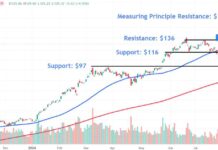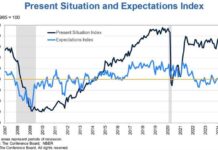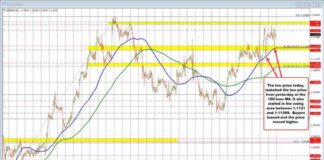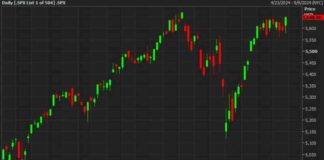The impact of social media on the stock market is a topic that has been gaining increasing attention in recent years. As technology continues to evolve and shape the way we communicate and access information, it is no surprise that social media platforms have become a key player in the financial markets. One notable figure in the world of finance, Cliff Asness, a renowned quant investor, has highlighted the significance of social media in influencing stock market trends.
The Power of Efficiency Through Technology
Efficiency is a driving force behind technological advancements in various industries. From automated production lines in manufacturing to streamlined communication tools in office settings, technology has revolutionized the way we work. The financial sector is no exception, with the emergence of algorithmic trading and high-frequency trading strategies reshaping the landscape of stock market operations.
Social media platforms have further accelerated the pace of information dissemination and market sentiment. With a click of a button, users can share news, opinions, and analysis that can impact stock prices in real-time. This instantaneous flow of information has both positive and negative implications for investors and market participants.
The Rise of Social Media Influence
The rise of social media as a powerful tool for market influence can be attributed to its widespread adoption and accessibility. Platforms like Twitter, Reddit, and StockTwits have become hubs for discussions on stocks, investment strategies, and market trends. Retail investors, also known as “armchair traders,” have gained a significant presence on these platforms, often driving stock price movements through their collective actions.
One of the most notable examples of social media’s impact on the stock market is the GameStop saga that unfolded in early 2021. A group of retail investors on Reddit’s WallStreetBets forum coordinated a massive buying spree of GameStop stock, causing a short squeeze that resulted in significant losses for hedge funds and institutional investors. This event highlighted the power of social media in democratizing market participation and challenging traditional market dynamics.
The Dark Side of Social Media Influence
While social media can democratize market participation and amplify retail investor voices, it also has a dark side. The spread of misinformation, market manipulation, and pump-and-dump schemes are prevalent on social media platforms. False rumors, fake news, and coordinated efforts to inflate or deflate stock prices can lead to market volatility and investor uncertainty.
Regulators and market watchdogs are increasingly scrutinizing the role of social media in financial markets to ensure fair and transparent trading practices. The Securities and Exchange Commission (SEC) has issued warnings about the risks associated with social media-driven trading and has taken enforcement actions against individuals and entities engaged in fraudulent activities.
In conclusion, the impact of social media on the stock market is undeniable. From influencing stock prices to shaping market sentiment, social media has become a powerful force in the financial markets. As investors navigate this digital landscape, it is essential to remain vigilant, discerning, and informed to make sound investment decisions in an era where tweets and hashtags can move markets.

















